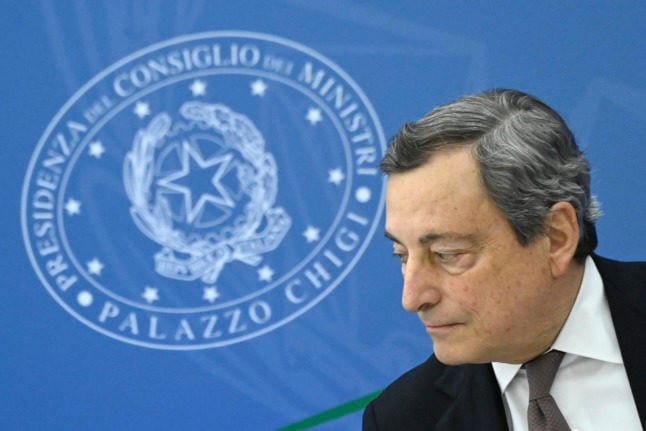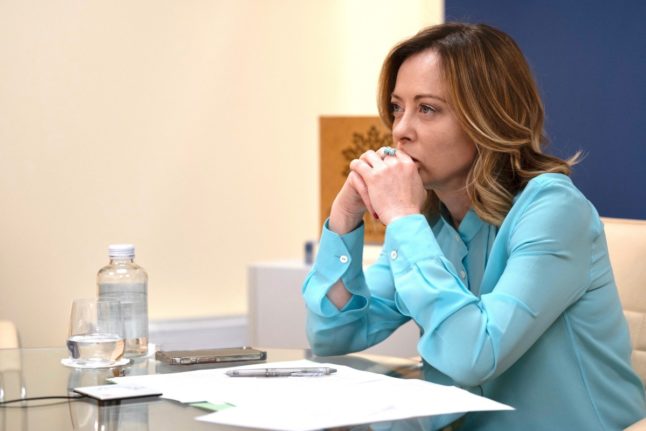The right-wing bloc abstained and the centre-left cast blank ballots in the parliamentary vote, prolonging the uncertainty over the leadership of the eurozone’s third-largest economy.
After four days of voting, Italians had hoped for a breakthrough on Thursday when the threshold for victory falls from a two-thirds majority of the electoral college to an absolute majority.
Leaders suggested a deal might be found by a fifth round on Friday.
READ ALSO: No clear favourites in presidential race as Italy heads for fourth round of voting
Draghi, a former European Central Bank chief who has led Italy’s national unity government since February 2021, was the frontrunner going into the contest.
But concerns his departure would destabilise the coalition, threatening a tight reform programme on which EU recovery funds depend and risking snap elections, have persisted over days of intensive backroom talks.
Matteo Salvini of the anti-immigration League party, part of the right-wing bloc, insisted on Thursday that Draghi was “precious there, where he is now”.
The president is a ceremonial figure, but wields great power during political crises – frequent events in Italy, which has had dozens of different governments since World War II.
READ ALSO: Five things to know about Italy’s presidential elections
Without formal agreement between the parties, lawmakers are effectively refusing to vote – in each round so far, most ballots have been left blank.
Meanwhile, the list of potential alternatives to Draghi changes daily, from ex-premiers to judges and even Italy’s spy chief, Elisabetta Belloni.
Former Chamber of Deputies speaker Pier Ferdinando Casini and Senate speaker Elisabetta Casellati – who would be the first female president – are considered to be in with a chance.
‘Divided’
Draghi has led a remarkably united government for the past 11 months, overseeing the economic recovery after a punishing pandemic-induced recession.
Many want him to stay to oversee major reforms to the tax and justice systems and public administration demanded in exchange for almost 200 billion euros ($225 billion) worth of funds from the EU’s post-virus recovery scheme.
But with parties already campaigning for the 2023 general election, many analysts believe he will find it increasingly difficult to get things done.
READ ALSO: The Italian vocabulary you’ll need to follow the presidential election
Former senate speaker Renato Schifani said it was “the first time I’ve seen parliament so divided”.
Some even raise the possibility that Draghi could tire of the politicking and resign as premier.
“If parties try to force the situation and elect another president with the support of only one side of the current national unity government, they risk Draghi’s resignation and snap elections,” said Lorenzo Codogno, a former head economist at the Italian treasury.
The electoral college is made up of more than 1,000 senators, MPs and regional representatives.



 Please whitelist us to continue reading.
Please whitelist us to continue reading.
Member comments